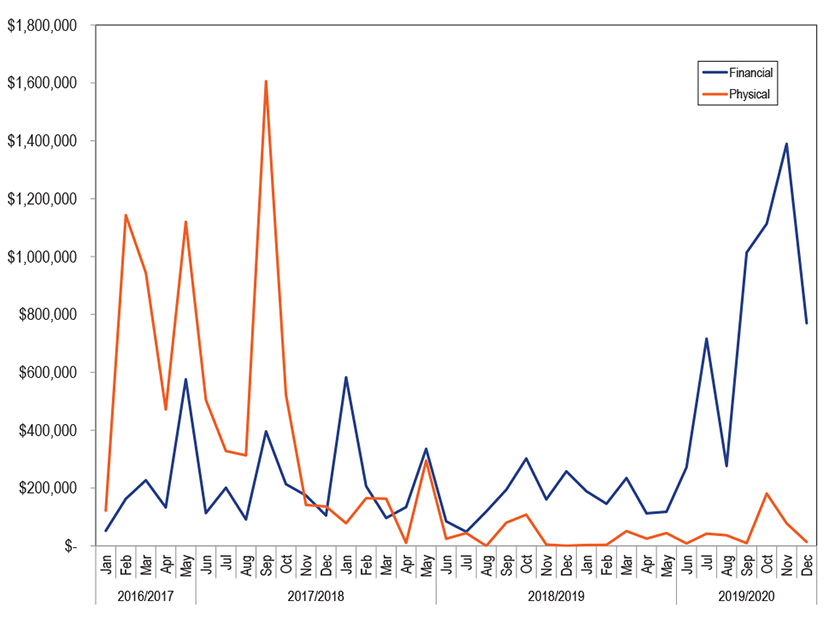The D.C. Circuit Court of Appeals on Friday upheld FERC’s decision to approve PJM’s financial transmission rights forfeiture rule without ordering refunds under previous rules implemented without commission approval.
But the court remanded the case to FERC to provide a fuller explanation of why it did not order a forfeiture exemption for non-leveraged transactions — when a trader’s FTR gains do not exceed the losses incurred from that trader’s virtual transactions (22-1096).
FTRs are financial instruments that allow load-serving entities to hedge the risk of transmission congestion costs and permit financial traders to arbitrage day-ahead and real-time congestion. PJM originally implemented the forfeiture rule in 2000 to prevent market participants from using virtual transactions to create congestion that benefits their FTR positions.
The commission ruled in May 2021 that PJM’s previous 1-cent FTR impact test, which determines whether the net flow impacts the absolute value of an FTR by 1 cent or greater, to be unjust and unreasonable. FERC approved PJM’s replacement rule in January 2022 (ER17-1433). (See FERC Accepts New PJM FTR Forfeiture Rule, Without Refunds.)
After FERC rejected rehearing requests from FTR trader XO Energy, the traders sought relief in the D.C. Circuit, arguing that the commission’s decision approving the new rules and denying refunds under the old rules was arbitrary.
The D.C. Circuit said XO’s arguments were “ultimately unpersuasive” and that the commission “adequately justified” its decision not to order refunds.
“It considered record evidence submitted by PJM, which explained that calculating refunds would be a difficult task requiring ‘considerable software development and testing work that would take months to complete,’” the court said.
The court was more sympathetic to XO Energy’s contention that the new rule should exempt “non-leveraged” positions from forfeiture because they provide no economic incentive to engage in manipulative conduct.
While it declined to overturn the ruling, the court said FERC had provided only “a brief … inadequate, explanation of why it declined to order a forfeiture exemption for non-leveraged transactions.”
“Although the commission acknowledges that leverage might be one way to determine cross-product manipulation, it states that it opted to allow PJM to employ other means to detect this conduct rather than require exemptions based on leverage,” the court said. “That is the extent of the commission’s explanation. It does not address XO Energy’s position that market manipulation cannot occur when the net losses of a trader’s virtual transaction portfolio exceed the net profits from its FTR portfolio. Nor does it explain why the exclusion of this requirement strikes the appropriate balance between preventing manipulative conduct and not hindering legitimate hedging activity.”
But the court declined to vacate the order, saying instead that FERC could “redress the deficiency of its reasoning by providing a more fulsome explanation for its decision not to order PJM to account for leverage.”




